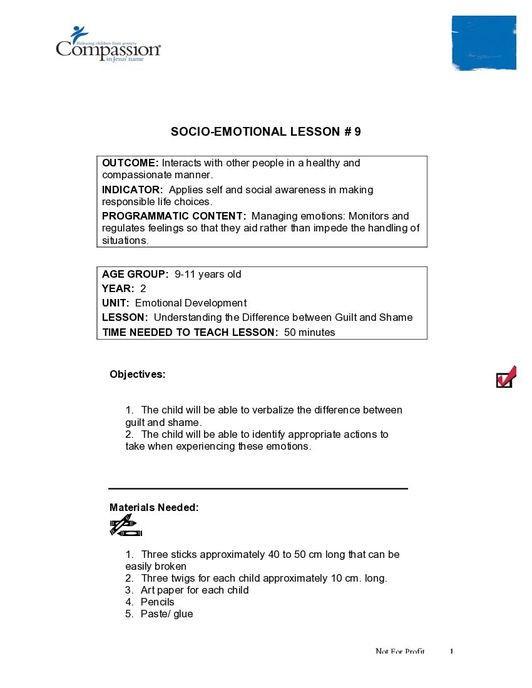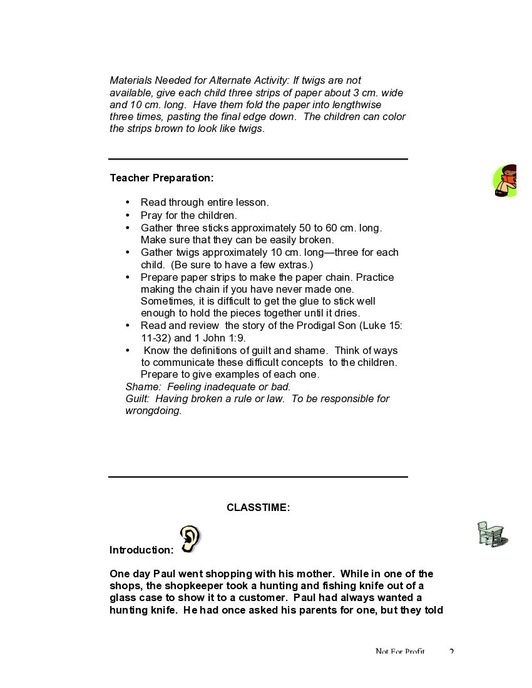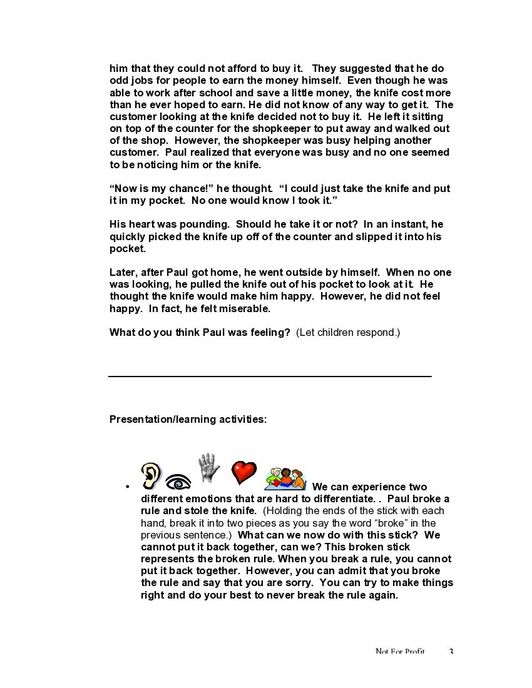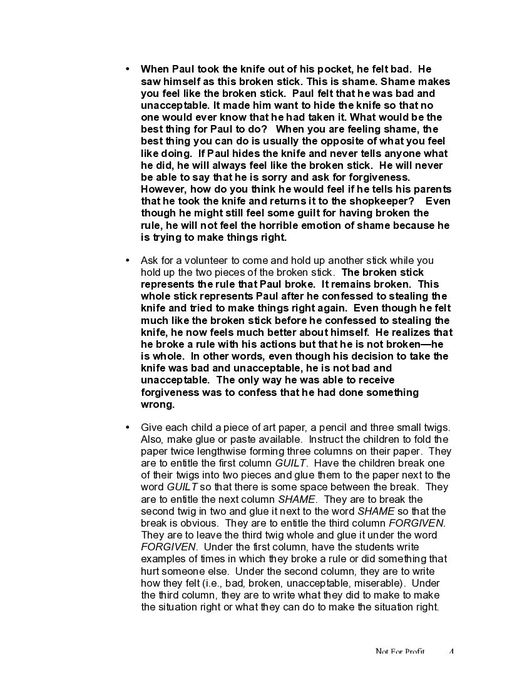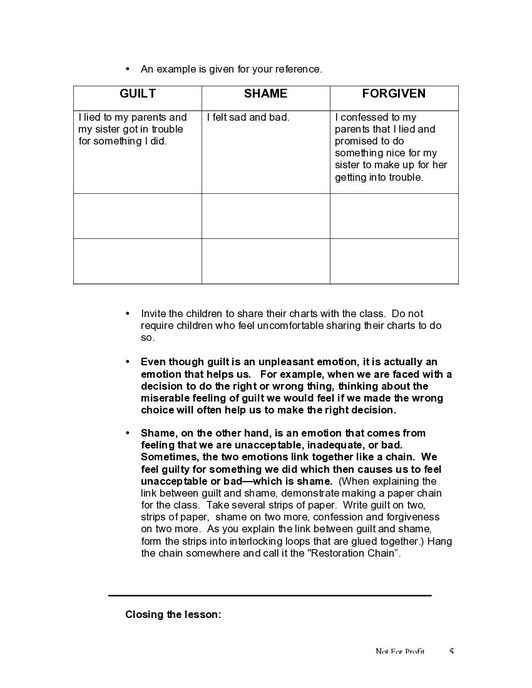Understanding the Difference Between Guilt and Shame
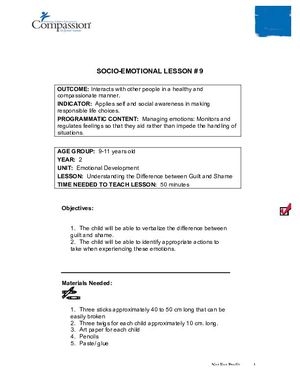
Onesha upya
Uhajitaji Kuingia
Lazima uwe mmoja wa jamii ya ForChildren.com ili upakue rasilimali. Bofya vitufe vilivyo hapa chini ili uingie au ujisajili!
| Kategoria | Mihemko ya Kijamii |
| Copyright Owner and Year | Compassion International, 2024 |
The lesson “Understanding the Difference Between Guilt and Shame” teaches about personal responsibility as well as managing and monitoring feelings and emotions, specifically understanding how healthy guilt for actions differs from feeling ashamed as a person. The children will be able to verbalize the difference between the two emotions, as well as identify appropriate actions to take when experiencing the feelings, specifically asking the Lord for forgiveness. The lesson includes guided instructions for the teacher, including preparation, a script, and suggested activities to facilitate further learning in a fun and interactive manner. This lesson is designed for children between 9-11 years, and is the ninth lesson in the 2nd year “Emotional Development” unit.
Hati Zinazohusiana
-
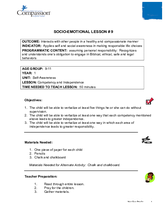
Competency and Independence
The lesson “Competency and Independence” teaches about personal responsibility and the importance of engaging in Biblical and Godly actio… -
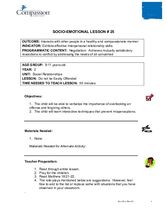
Do Not Be Easily Offended
The lesson “Do Not Be Easily Offended” helps children to further understand the benefits of strong interpersonal skills when relating to … -
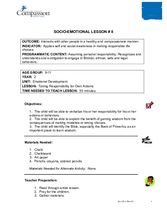
Taking Responsibility for Own Actions
The lesson “Taking Responsibility for Own Actions” teaches children about personal responsibility and moral obligations as they relate to… -
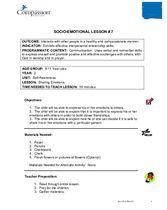
Sharing Emotions
The lesson “Sharing Emotions” continues to teach children about the importance of communication in interpersonal relationships and how to… -
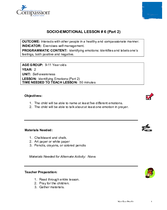
Identifying Emotions (Part 2)
The lesson “Identifying Emotions (Part 2)” teaches children to further identify and monitor feelings and emotions to aid rather than impe… -
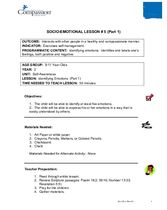
Identifying Emotions (Part 1)
The lesson “Identifying Emotions (Part 1)” teaches children how to recognize and identify emotions, both positive and negative. Each chil… -
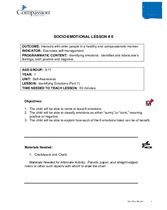
Identifying Emotions (Part 1)
The lesson “Identifying Emotions (Part 1)” teaches children to monitor and regulate feelings to aid rather than impede in the handling of… -
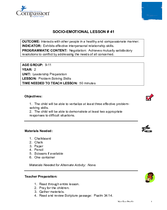
Problem Solving Skills
The lesson “Problem Solving Skills” focuses on effective interpersonal skills and social and self-responsibility in using problem-solving… -
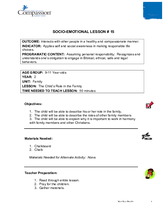
The Child’s Role in the Family
The lesson “The Child’s Role in the Family” teaches children more about self-awareness and identity, as well as about responsibilit… -
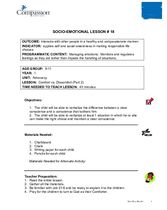
Comfort vs. Discomfort (Part 2)
The lesson “Comfort vs. Discomfort (Part 2)” teaches children about self and social awareness, the managing of emotions and feelings, and…
ForChildren.com inatolewa na Compassion International, shirika lisilo la faidia lililosajiliwa 501(c)3. Nyenzo, kozi, na majadiliano yote yanakusudiwa kwa matumizi ya elimu peke yake, na sio kwa faida.

